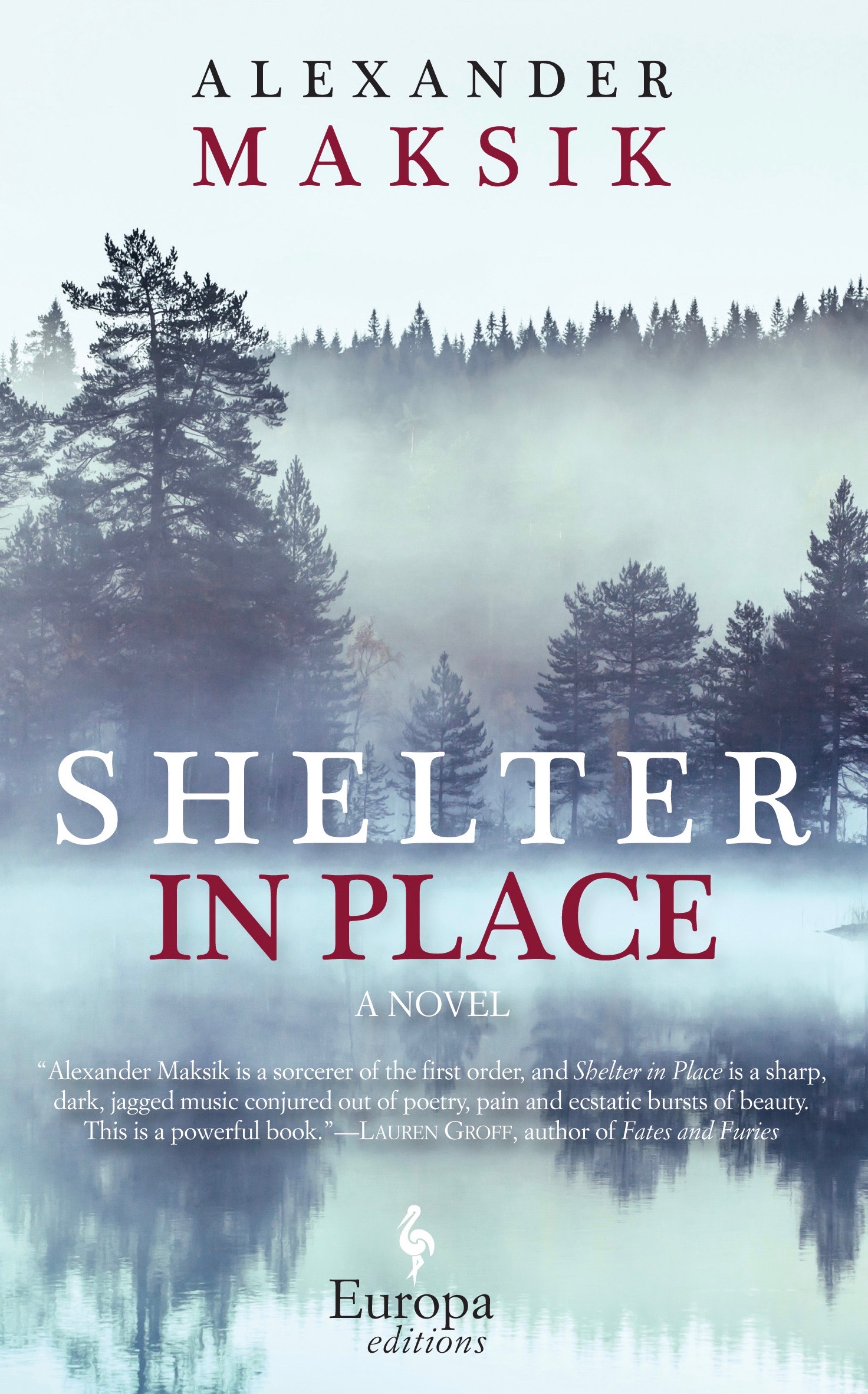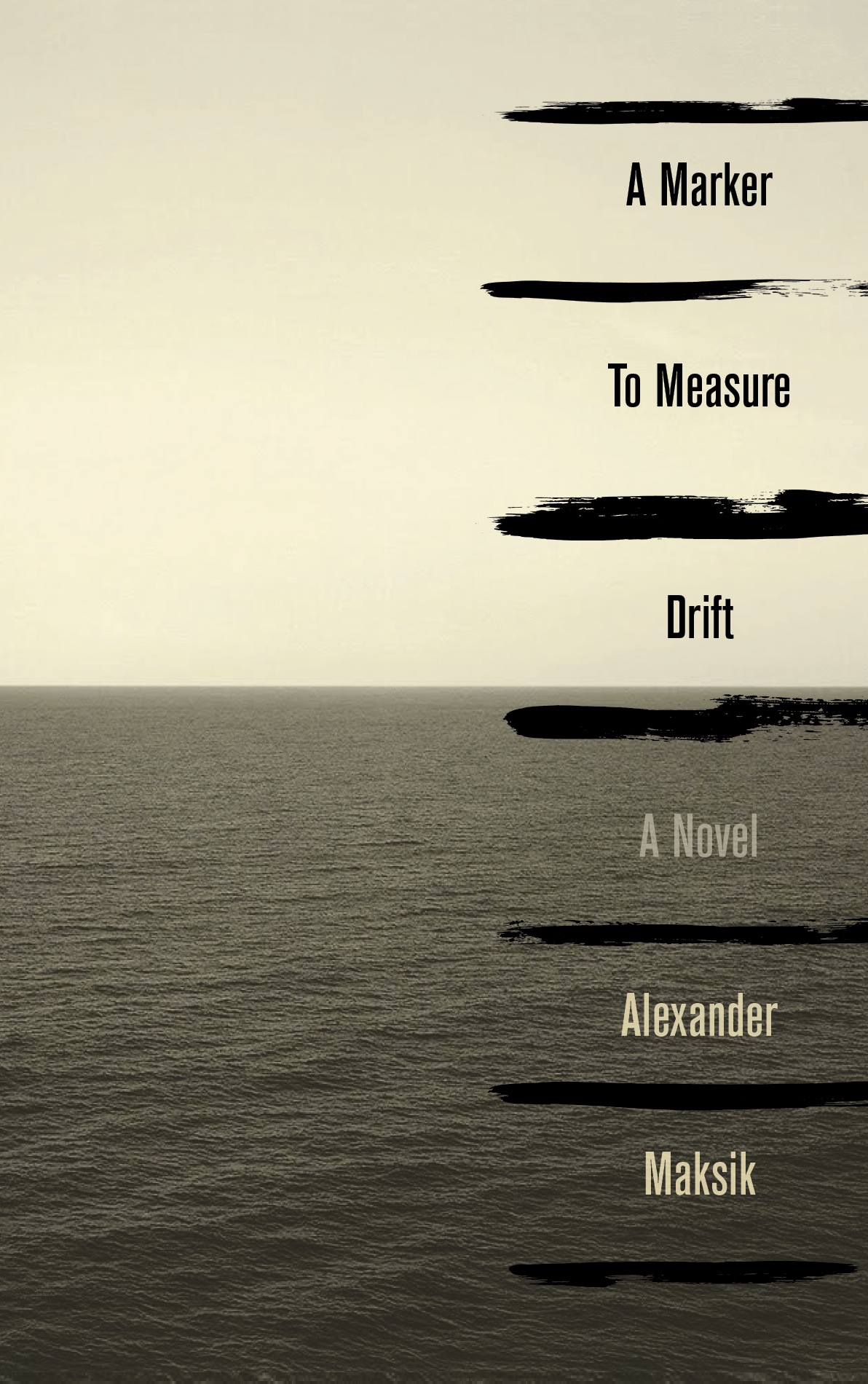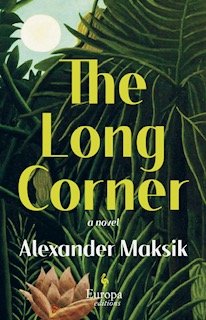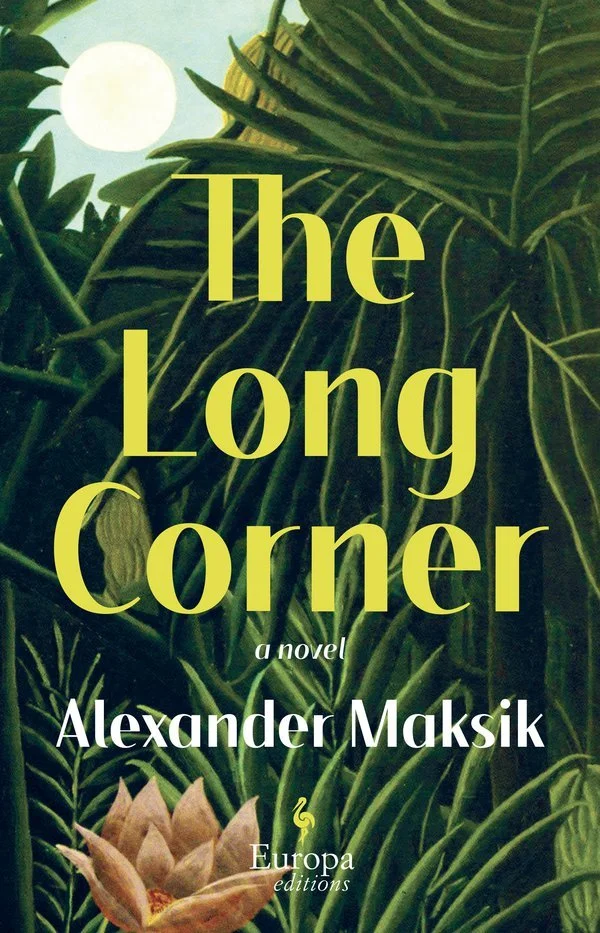Shelter in Place
A Guardian Best Book of 2016
A San Francisco Chronicle Best Book of 2016
Un Revue America Meilleur Livre de l’Année
Set in the Pacific Northwest in the jittery, jacked-up early 1990s, Shelter in Place, by one of America’s most thrillingly defiant contemporary authors, is a stylish literary novel about the hereditary nature of mental illness, the fleeting intensity of youth, the obligations of family, and the dramatic consequences of love.
Joseph March, a twenty-one-year-old working class kid from Seattle, has just graduated from college and his future beckons, unencumbered, limitless, magnificent. Joe’s life implodes when he starts to suffer the symptoms of bipolar disorder, and, not long after, his mother, Anne-Marie March, beats a stranger to death with a hammer.
Joe moves to White Pine, Washington, where Anne-Marie is serving time and his father has set up house. He is followed by Tess Wolff, a fiercely independent woman with whom he is in love. Meanwhile, Joe’s mother is gradually being transformed into a national heroine. Many see her crime as a furious, exasperated act of righteous rebellion. Tess, too, is under her spell. Spurred on by Anne-Marie’s example, she enlists Joe in a secret, violent plan that will forever change their lives.
Praise for SHELTER IN PLACE
“There’s something truly exhilarating about reading a novel that’s so audaciously original, so inventive and let’s be honest, so sort of weird that you want to put it in the hands of just about everyone you know. And that’s a perfect description of Alexander Maksik’s stunningly unsettling third novel, Shelter in Place.”
– San Francisco Chronicle
“Alexander Maksik’s riveting and disturbing novel Shelter in Place is a totally original exploration of mental illness, sexual politics, family and violence.”
– Guardian
Maksik perfectly captures the weight of mental illness, the ache of longing and uncertainty, and the complexity of human relationships. Highly recommended.
-Library Journal
“Alexander Maksik covers fresh ground with each new work. In poetic bursts…he captures [his characters’] inner convulsions while exploring the passions that can drive, and destroy, us.”
– Vanity Fair
“Impressive . . . A novel of considerable power.”
– Times Literary Supplement
“A riveting, darkly beautiful novel . . . poised to be one of the big books of the season – the kind of sweeping story that encompasses so much of what it is to be human.”
– Departures
“Sensual, musical . . . Shelter in Place is as unquestionably brilliant as it is painful; a rare meditation on mania, depression, and the rage of youth.”
– Huffington Post
“[A] striking narrative. . . Maksik’s Joe March is a man for today as much as Ishmael and Stephen were for Melville’s and Joyce’s days.”
– Shelf Awareness
“An incredibly courageous novel that delves deeply into issues of love, gender, violence and mental illness.”
– Publishers Weekly
“Maksik is one of the most exacting and daring writers we have . . . from the first sentence there’s no turning away from this story.”
– Literary Hub
“Intense and . . . mesmerizing.”
– Booklist
“[A] scorching third novel. Maksik [delivers] a portrait of bipolar disorder…that is honest and devastating.”
– Publishers Weekly
“Alexander Maksik is a sorcerer of the first order, and Shelter in Place is a sharp, dark, jagged music conjured out of poetry, pain and ecstatic bursts of beauty. This is a powerful book.”
– Lauren Groff, author of Fates and Furies and Arcadia
“An unsettling and beautiful exploration of mental illness, love, violence, family and sexual politics. Maksik’s artful story outruns all sorts of received ideas and cliched narratives, and slips into deeply original territory. You’ll be haunted by it in the best possible way.”
– Katie Roiphe, author of The Violet Hour and In Praise of Messy Lives
“Unsettling and honest, a remarkably insightful portrait of mental illness, Shelter in Place is elegiac, savage and mournful, a beautifully written novel about the echoes of our actions, of love and its consequences.”
– Aminatta Forna, author of The Hired Man and The Memory of Love
“Shelter In Place is a love story like none I’ve ever read before. Lust, longing, betrayal, revenge—it’s all here, but only when and where you least expect it. Densely ruminative, and bracingly unromantic, the ballad of Tess, Joe, and his parents tests the brutal outer-limits of patriarchy, the bleak realities of untreated mental illness, and the nature of loyalty in a world where every woman is out for herself. And every man, as well.”
– Kate Bolick, author of Spinster: Making a Life of One’s Own
“Shelter in Place is a magnificent novel. Alexander Maksik charts the legacy of violence and the limits of justice with grace and power.”
– Anthony Marra, author of A Constellation of Vital Phenomena and The Tsar of Love and Techno
“Shelter in Place takes a brilliant look at the fractured, jagged nature of masculinity, at how gender warps consciousness in ways we struggle and fail to understand. Maksik writes from inside the fire of a mind unfiltered, unsettled, unresigned, a mind it would be too simple to call unwell. The narrator’s episodes of mania are glittering raptures, electric; his descents into the infinite nothingness of depression drawn so true to that state of absence, of blindness, of Styron’s ‘darkness visible,’ you feel all the numb trapped terror of it. This book’s cutting, unchecked prose makes you an accomplice to violence, and leads you to realize we all are—formed and directed by cruelty, whether as victims, agents, warriors, survivors, or witnesses. Shelter in Place poses the hard, important, and perhaps unanswerable question—how do you live with your self?”
– Merritt Tierce, author of Love Me Back

A Marker to Measure Drift
A New York Times Book Review Notable Book of 2013
A New York Times Book Review Editors’ Choice
A Chicago Tribune Editor’s Choice
Finalist for the William Saroyan International Prize for Writing
Shortlisted for Le Prix du Meilleur Livre Étranger
In the aftermath of Charles Taylor’s fallen regime, a young Liberian woman named Jacqueline has fled to the Aegean island of Santorini. She lives in a cave accessible only at low tide. During the day, she offers massages to tourists, battling her hunger one or two euros at a time. Her pressing physical needs provide a deeper relief, obliterating her memories of unspeakable violence.
But slowly, the specters of her former life resurface: her adoring younger sister; her unshakably proper mother; her father, who believed in his president; her journalist lover, who knew that Taylor would be overthrown. Now Jacqueline must face the ghosts that haunt her—or tip into full-blown madness. Hypnotic in its depiction of physical and spiritual hungers, this is a novel about ruin, faith, and the devastating memories can destroy and redeem us.
Praise for A MARKER TO MEASURE DRIFT
“No novel I read this year affected me more powerfully than Alexander Maksik’s A Marker to Measure Drift.”
– Richard Russo
“A masterpiece . . . Maksik manages to accomplish in Marker something next to no one has managed to do, namely, to strip the world down to naked life, life in all its glory and all its agony and terror, and death . . . Maksik’s prose floats weightlessly and then falls like a fist on the table.”
– Jennifer Croft, Buenos Aires Review
“La Mesure de la dérive emporte le lecteur, comme rarement un roman, dans l’intimité d’un être assiégé par la faim. Etonnamment, superbement, Alexander Maksik fait de cette vie errante et obstinée . . . une aventure bouleversante, un drame solaire, écrit avec une efficace et subtile empathie.”
– Le Monde
“Un roman sensible et magnifique . . . On est tout de suite happé par la puissance émotionnelle de ce récit lumineux et tragique, qui par sa sensibilité, évoque les œuvres Albert Camus. . .”
– Paris Match
“I was so caught up in the masterfully taut and suspenseful story of this haunted and desperate young woman that it was only after I’d turned the last page that I was able to stop and consider the truly breathtaking accomplishment of this novel. How did Alexander Maksik immerse himself so convincingly in a world so entirely unlike his own, and in a character so entirely different from himself? It is work of stupendous imagination, like Dave Eggers’ What is the What, or (dare I say?) like Mark Twain’s Huckleberry Finn.”
– Ayelet Waldman
“Maksik hits the mark. His writing is both stark and lyrical, subtly reflecting Jacqueline’s state of mind – wary, desolate, hallucinatory, determined. Maksik’s last ten pages, a masterclass in how to captivate and revolt a reader, may well be the most powerful I will read all year”
– Malcom Forbes, Literary Review
“Maksik has produced a bold book, and an instructive one . . .[he] has illuminated for us with force and art an all too common species of suffering – grievous, ugly and, unfortunately, a perennial.”
– Norman Rush, New York Times Book Review
“A fever dream of a novel . . . One might linger over most of this book, rereading particularly beautiful passages. Yet the ending is so compelling and visceral that one rushes until the fever breaks, dazed and haunted by its power.”
– Chicago Tribune, Editor’s Choice
“Poetic . . . faultlessly lyrical . . . A Marker to Measure Drift is about compassion; perhaps it’s even a masterclass in compassion . . . Maksik does not take sides or make judgments. He is simply aware that his job as a novelist is to talk to us about something that we ought to know . . . And to move us deeply in the process.”
– Sydney Morning Herald
“Maksik emerges with something stark and essential. . . No doubt he still faces obstacles in his work, missteps and uncertainty from day to day. A book in print doesn’t cure all ills. With A Marker to Measure Drift, though, Alexander Maksik’s deep belief proves warranted: he has succeeded.”
– The Millions
“Haunting and sensual, Maksik’s prose deftly intertwines the tenderness and torment of memory with the hard reality of searching for sustenance and shelter.”
– Harper’s
“Beautiful . . . It will leave you breathless and speechless; it will send you reeling.”
– San Francisco Chronicle
“Immensely powerful . . . Beautifully written . . . Jacqueline is a mesmerizing heroine . . . She is alive on the page from the outset, and with each paragraph she deepens, grows more complicated. Maksik brings Jacqueline’s tale to a devastating finale . . . giving her quest an awful and moving dignity.”
– Boston Globe
“Luminous . . . Maksik is both deft and lyrical, a master of tense—his shifts from past to present and back again are nearly invisible, so appropriate do they feel—and a sensualist, and it is impossible to read Marker with less than total attention . . . Maksik’s brilliance is evident in his ability to keep the novel’s stripped-down cast and plot so riveting.”
– Winnipeg Free Press
“Moving, painful and beautiful. It will change you.”
– Booklist
“A moving, deeply felt and lyrical novel.”
– Kirkus (starred review)
“A Marker to Measure Drift is a haunting, haunted novel. Things get stripped down to essentials–food, water, where to sleep for the night, a state of solitary desperation brought on by the most profound kind of loss. Every line of this excellent novel rings true as Maksik leads us toward the catastrophe at the story’s core. This is one of those books that leaves you staring into space when you finish, dazed from the sheer power of what’s been said.”
– Ben Fountain, author of Billy Lynn’s Long Halftime Walk
“Gorgeously written, tightly wound, with language as precise as cut glass, Alexander Maksik’s A Marker to Measure Drift is a tour de force. Maksik renders the soul of his heroine, a Liberian refugee, with stark honesty so that we understand both the brutality of what she has run from and the terror she experiences as she tries to build her life back. I was undone by this novel. I challenge anyone to read it and not come away profoundly changed.”
– Marisa Silver, author of Mary Coin and The God of War
“A Marker to Measure Drift is spellbinding. In its tenderness, grandeur and austerity, it reminds us that there is no country on earth as foreign, as unreachable, as the frantic soul of another human being.”
– Susanna Sonnenberg, author of Her Last Death and She Matters
“A mesmerising novel about a woman pushed to the limits of human experience. Maksik combines James Salter’s gift for seductive sentences with a real mastery of character and story. A beautiful, tender piece of literature which just happens to be a page-turner too.”
– Jonathan Lee, author of High Dive

You Deserve Nothing
A New York Times Bestseller
An IndieBound Bestseller
Set in Paris, at an international high school catering to the sons and daughters of wealthy, influential families, You Deserve Nothing is a gripping story of power, idealism, and morality. In Maksik’s stylish prose, Paris is sensual, dazzling and dangerously seductive. It serves as a fitting backdrop for a dramatic tale about the tension between desire and action, and about the complex relationship that exists between our public and private selves.
Praise for You Deserve Nothing
“A novel rivetingly plotted and beautifully written. . . [Maksik] writes about the moral ambiguity of Will’s circumstances with dazzling clarity and impressive philosophical rigor.”
— New York Times
“Marvelous . . . provocative . . . suspenseful.”
— Chicago Tribune, Editors’ Choice
“Maksik, in his account of adolescent yearning and grown-up fallibility, does something like what Hemingway did in his non-debut memoir, “A Moveable Feast” – he vividly evokes a destination for generations of foreign seekers.”
— San Francisco Chronicle
“While comparisons with Donna Tartt and J D Salinger are apt given the high school setting and philosophical digressions, it’s Ian McEwan who comes most readily to mind. Maksik’s Paris is brilliantly sketched and demythologized. YOU DESERVE NOTHING arrives with a fanfare of acclaim. Alexander Maksik proves himself a worthy recipient of this attention.”
— Times Literary Supplement
“A suberb debut novel.”
— Sunday Times
“With writing that is reminiscent of James Salter’s in its sensuality, Francine Prose’s capacious inquiry into difficult moral questions and Martin Amis’s loose-limbed evocation of the perils of youth, Maksik brings us back to that point in all our lives when character is molten, integrity elusive and beauty unbearably thrilling.”
— Christian Science Monitor
“Largely a character study of Will Silver, master teacher at the International School of France in Paris, the novel advances its narrative through multiple perspectives, much as Faulkner does in As I Lay Dying . . . Both intelligent and intellectual, [You Deserve Nothing] is both a tribute to brilliant teachers and a cautionary tale of their imperfections.”
— Kirkus Reviews (starred review)
“One of the most engaged reads I’ve had in years.”
— Alice Sebold, author of The Lovely Bones
Alexander Maksik deftly evokes the beauty and pathos of Paris, and the story of Will, Gilad and Marie-each compelled towards moral and sexual awakening- is at once dark and luminous. This is a book to be read all at once with a glass of wine in a café or a cup of tea while tucked safely in bed”
— A.M. Homes, author of May We Be Forgiven
“You Deserve Nothing is a powerful, absorbing novel and Alexander Maksik is an unusually gifted writer.”
— Tom Perrotta, author of Little Children, Election, and The Leftovers
“The phrase ‘brilliant debut’ is much overused in our world, but Alexander Maksik’s You Deserve Nothing is truly one of those rarest of creatures, a brilliant debut. Maksik’s superb novel takes on the most fundamental question–how are we supposed to live?–with a freshness and urgency that are nothing short of masterful. This is a gorgeous, troubling, unflinching book, as honest and rich a depiction of life’s contradictions as I’ve encountered in many years.”
— Ben Fountain, author of Brief Encounters with Che Guevara

The Long Corner
A New York Times Book Review Editors’ Choice
A Best Book of the Year - The Australian
A Best Book of the Year - Artnet
A bold novel about ambition, grief, creativity, beauty, and existential emptiness that retraces the arc of American life and culture in the first decades of the 21st century.
It is 2017 in New York City and Solomon Fields, a young journalist-turned-advertising hack, finds himself disillusioned by the hollowness and conformity of American life and language. Once brimming with dreams and ideals instilled in him by his bohemian grandmother, a Holocaust survivor who has dedicated her adult life to passion and pleasure, Sol now finds the senseless jargon he produces at work seeping into all aspects of the world around him.
Loss and disenchantment drive Sol to leave New York and accept an invitation to The Coded Garden, an artists’ colony located on a tropical island, whose mysterious patron, Sebastian Light, seems to offer the very escape Sol desperately needs. But the longer he remains in the Garden, the more Sebastian Light comes to seem the very embodiment of his age’s worst impulses. Slowly lines begin to blur—between reality and performance, sincerity and manipulation, art and life, beauty and emptiness—until Sol finds that he must question everything: his past, his convictions, and his very sanity.
Praise for The Long Corner
“Eerie and moving…compelling…finally an argument for the necessity of irony, risk and integrity in the production of art as in life.”
—New York Times Book Review
“[A]n enigmatic literary top that continues to spin after the last page…a triumph of sophisticated art.”
—The Forward
”Alexander Maksik is one of the most talented and versatile novelists of his generation…If the thought of Trump 2024 gives you pause, the best novel about Trumpism has already been written…The Long Corner, set largely in a writers’ colony on a tropical island, is a grim fable about the ways power can co-opt culture and even warp our sense of reality.”
—The Australian
”The Long Corner is a riveting read by an abundantly talented writer and storyteller.”
—Los Angeles Review of Books
“The novel is at turns comical, insightful, and unsettling, skewering the snobbery and cultishness of the art world while reconsidering the value of so-called creative genius—and the power of those who claim to foster it.”
—Artnet
”[Maksik] keeps readers guessing…it could be anything from an extravagant summer camp to the Island of Dr. Moreau; there are moments when it could easily turn into Jonestown, or The Blair Witch Project, or Fantasy Island, or simply a kibbutz. This ambiguity makes the narrative particularly compelling; it’s a hard book to put down.”
—Jewish Book Council
”Alexander Maksik, an inveterate stylist of the first order, is forever walking a line between cynicism and hope, all of it playing out at the level of language, his consistent preoccupation…it’s the pitch perfect movement of his sentences that distinguishes The Long Corner, just as they did in earlier novels…Maksik does the slow, difficult work of creating atmosphere with a style all his own, conjuring up a world that’s simultaneously obsessed with beauty and unerringly suspicious of all things beautiful. It’s that balance between the cynical and the hopeful. The stylist and the true believer.”
—Literary Hub
”[A] scathing satire…readers will revel in the riotous upending of a self-absorbed personality.”
—Publishers Weekly
“The Long Corner may be the world’s weirdest page-turner. The narrator’s incandescent intimacy with his grandmother, his preposterous encounters with artists (and “artists,” and money,) and the bleakness of his Late Capitalist Manhattan existence unspool in Maksik’s seductive novel—as propulsive as it is surreal.”
—Ariel Levy, author of The Rules Do Not Apply
“Masterful. Rarely does a novel so perfectly and delightfully encapsulate the madness of the time in which it is written.”
—Elliot Ackerman, author of Red Dress in Black and White
“The Long Corner is a sharp, witty and utterly engrossing novel about culture, kitsch, cynicism, and all the ways we corrupt what is most important to us. I laughed out loud, I couldn’t get enough of the characters, and I couldn’t put it down.”
—Phil Klay, author of Redeployment, Missionaries and winner of the National Book Award
”Both touching and comedic…even when it is hilarious, the stakes are significant: The Long Corner confronts the orthodoxy of authenticity as it dismantles questions about the creative act.”
—Matthew Barney, artist
”Maksik updates Fowles’ The Magus for the era of wellness, wealth and cultural impoverishment — a strange and haunting fable.”
—Ayad Akhtar, author of Homeland Elegies and winner of the Pulitzer Prize
”The Long Corner is such a pleasurable novel that you almost don’t notice how unsettling it is. It is a wonderfully written, probing book about power, passions, legacies and ways of seeing. Page by page The Long Corner asks us — with the deep resonance of all unfettered art — what one of Maksik’s brilliant characters calls the ‘most popular question in New York City’: What do you do?”
—Jonathan Lee, author of High Dive and The Great Mistake
”I really loved The Long Corner — it is funny, honest and self-aware as it tried to figure out how to make and think about art, where it belongs, and how to fight for it in this ridiculous world.”
—Lauren Elkin, writer and translator

